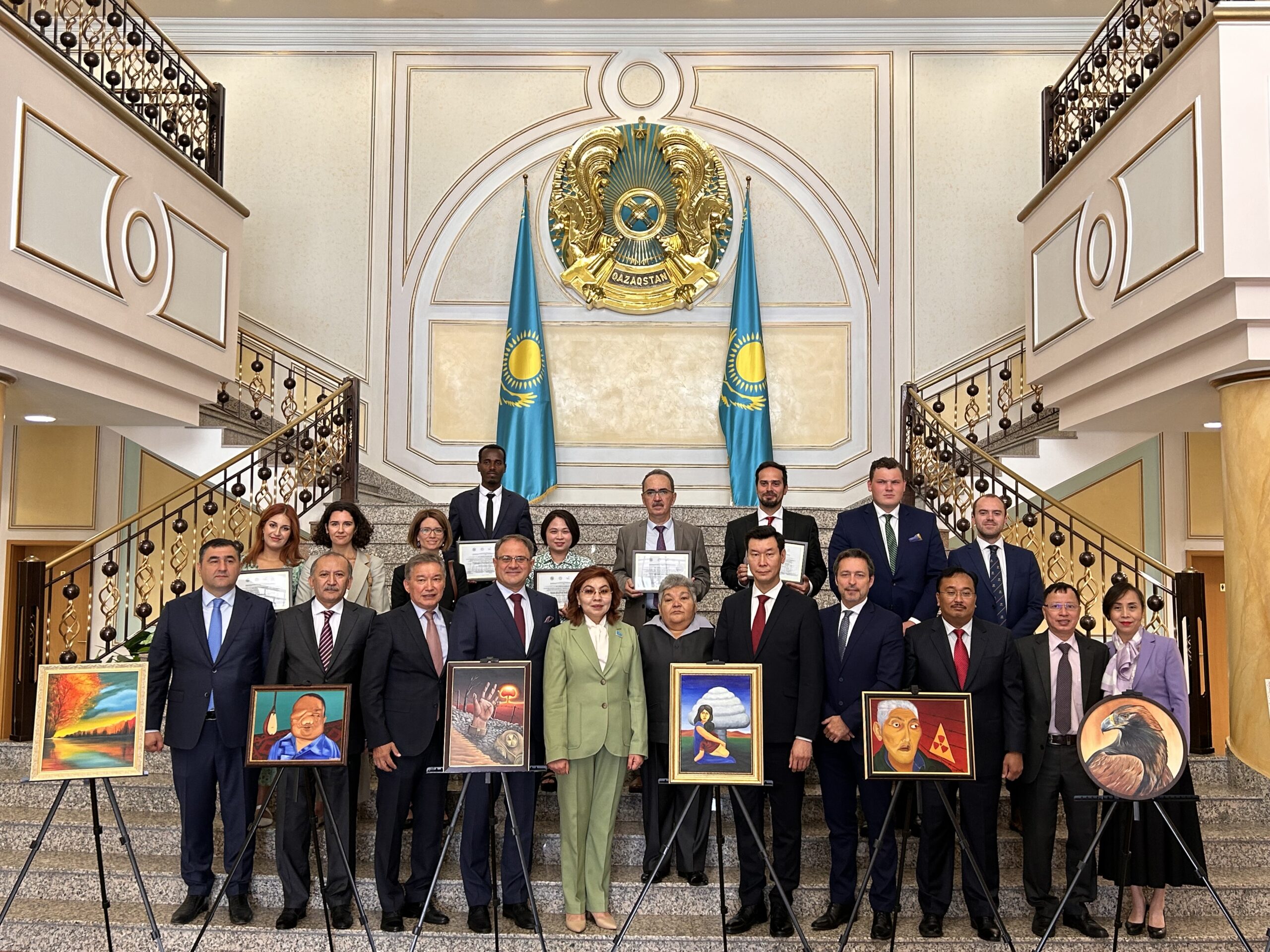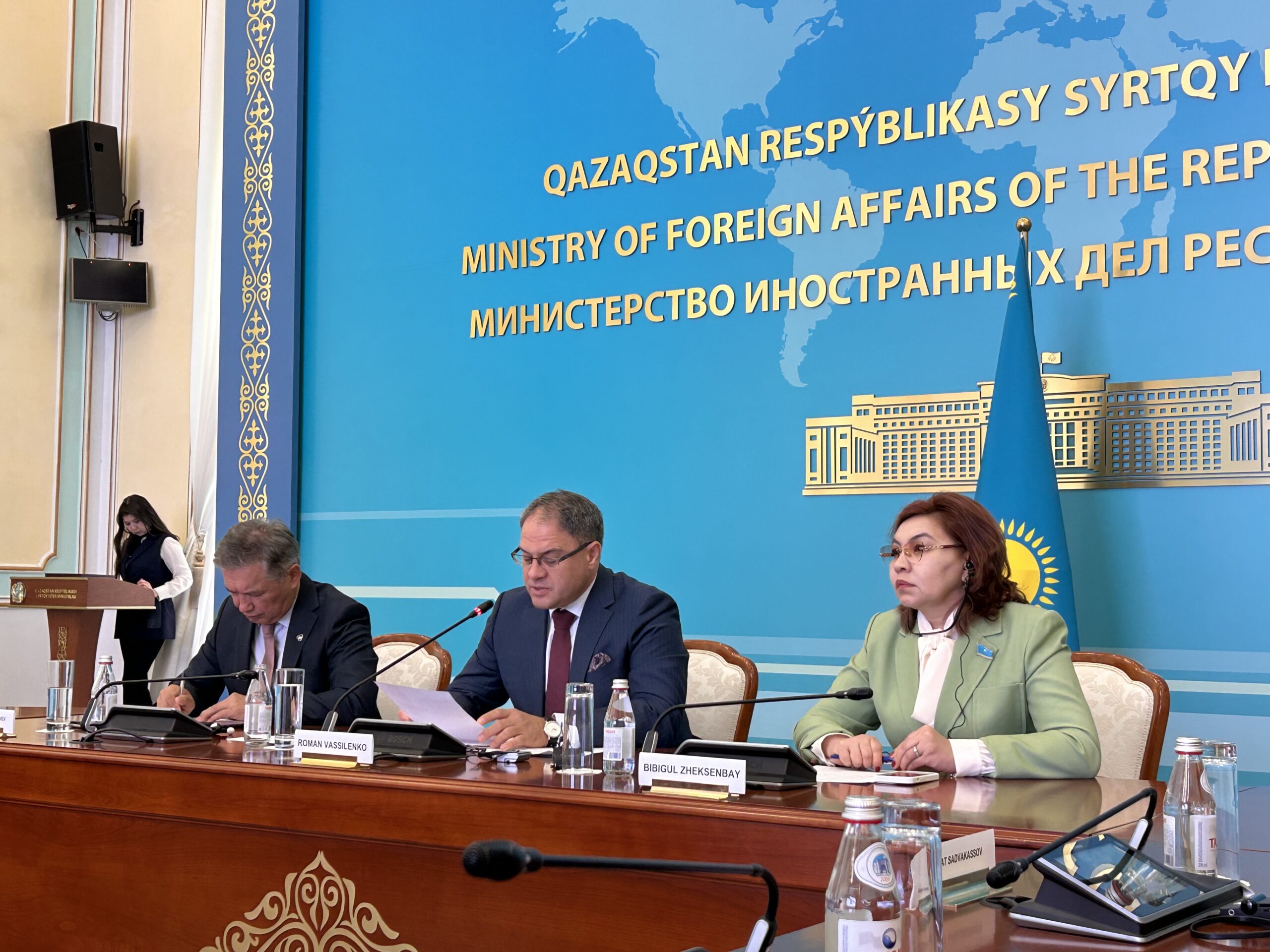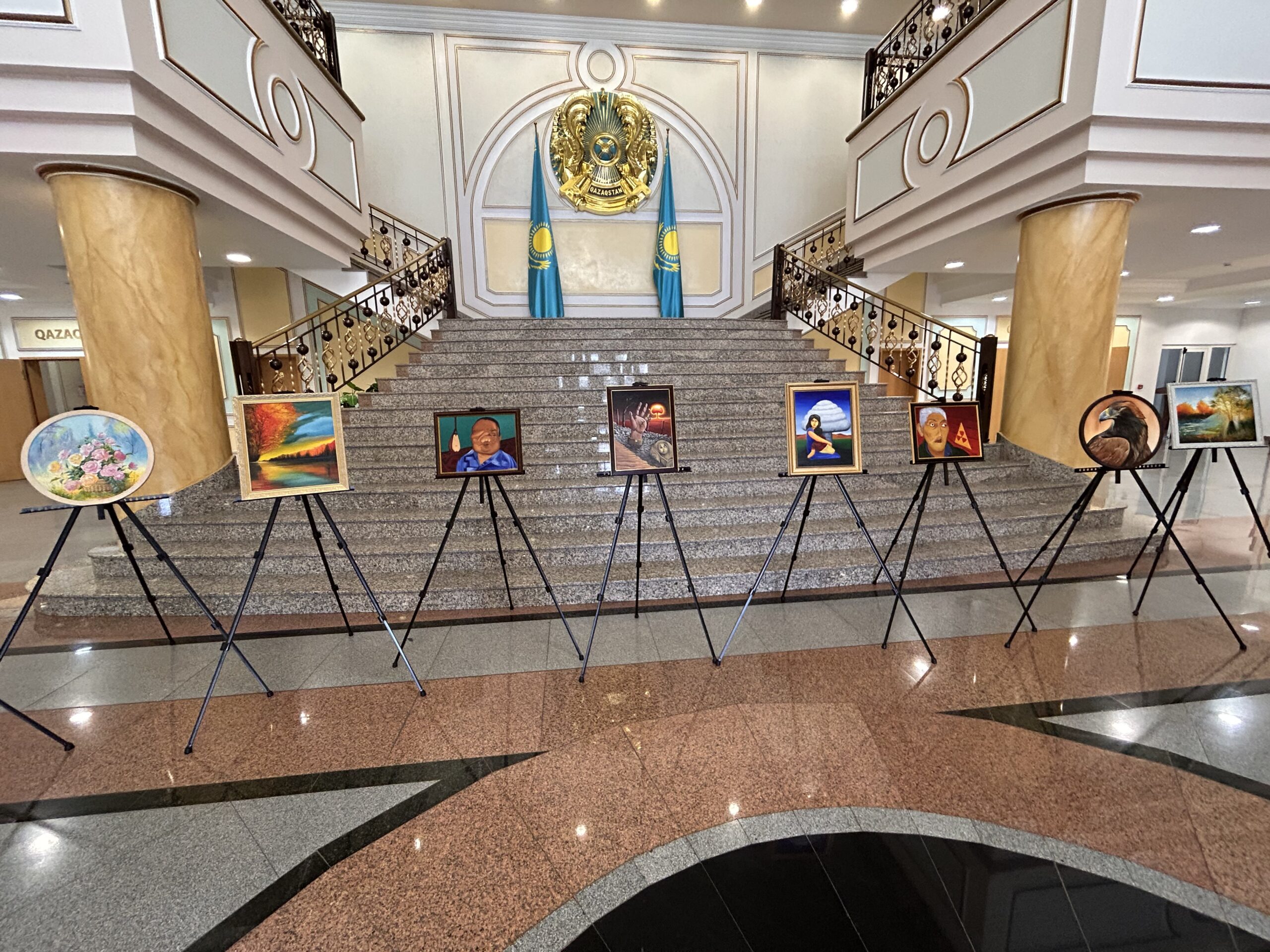ASTANA – The Kazakh Foreign Ministry hosted the ceremony on Aug. 29, honoring winners of the eighth Kazakhstan Through the Eyes of Foreign Media contest, initiated by the ministry, the Chief Editors Club, the Kazakh Tourism national company and the Secretariat of the Conference on Interaction and Confidence Building Measures in Asia (CICA).

A group photo after the award ceremony. Photo credit: Assel Satubaldina/ The Astana Times.
Eight authors were selected from over 70 applications from foreign journalists and bloggers from 40 countries. The jury included Kazakh Deputy Foreign Minister Roman Vassilenko, President of Kazakhstan’s Chief Editors Club Bibigul Zheksenbai, Kazakh Tourism Deputy Chairman Kairat Sadvakassov and Ambassador Doulat Kuanyshev, an expert in the CICA military-political dimension.
In his welcoming remarks, Vassilenko emphasized the importance of the journalistic work, as it “strengthens cooperation between nations and raises awareness of key issues that affect not just Kazakhstan, but the wider region and even the world.”
Uzdaily.uz journalist Askar Yakubov, who wrote about cooperation between Uzbekistan and Kazakhstan, Vietnamese reporter Xuan Nguyen Phan Huong, who covered Kazakh history and the development of bilateral cooperation, Spanish journalist Jose Puglisi, whose article focused on Kazakhstan’s bolstering global standing and Ethiopian reporter Gosaye Feyissa Nateyi, who wrote a series of articles, attended the ceremony.

According to Roman Vassilenko, journalists and content creators have a crucial role in sharing accurate information and news about countries, including their initiatives and objectives. Photo credit: Assel Satubaldina/ The Astana Times.
The Kazakh Tourism nomination winner – Italian travel blogger Filippo Tenti, who produced a documentary showcasing Kazakhstan’s culture and tourist destinations and Vera Dedyulya from the Canada Eurasia Chamber of Commerce, who produced a podcast dedicated to higher education in Kazakhstan, the transformation of Kazakhstan’s mining industry and what makes the country attractive to foreign investors could not attend the event in Astana.
This year, a separate nomination from CICA was introduced in the contest to mark Kazakhstan’s chairmanship of the organization. Nargiz Mammadova from Azerbaijan received the award. Ravichandran Rajamanickam from Malaysia could not attend the event but will get his award at the Kazakh embassy in his country.
“Thank you for this great opportunity to be here. When the CICA Secretary General [referring to Kairat Sarybay] came to Azerbaijan, I was one of the journalists to interview him and he had a great influence on me. I understand the role of this organization in Asia in diplomacy, in providing peace and security, not only in Asia but in the whole region of Europe and Asia,” said Mammadova.
Last year’s winners – the Ottawa Life Magazine journalist Donovan Mckenzie, who covered Kazakhstan’s democratic reforms and British blogger Tristan Hughes, who produced a podcast dedicated to an exhibition of Saka tribes’ archaeological heritage in Cambridge in 2021, also attended the ceremony.

Karipbek Kuyukov’s paintings were exhibited in the hall of the Foreign Ministry. Photo credit: Dana Omirgazy/ The Astana Times.
“It was a mind-blowing brilliant exhibition that was wonderful to go and see. (..) The significance of these studies is making people realize how much incredible history there is in this area of the world, and maybe making people look beyond places such as the Mediterranean and the Near East, and to give people more of a sense of that great wealth of archaeology that is here, and how sophisticated, how cultured these people and how important they are, to the story of us, of humans on this earth whether it is a couple of 1,000 years ago, or several 1,000 years ago, deep in the Stone Age,” Hughes told The Astana Times.
According to Hughes, the exhibition inspired him to produce more episodes, which his team did about the origins of horse riding and horse domestication. The best thing, he said, was that the podcast’s audience was fascinated and inspired to visit the exhibition.
Mckenzie, who came from Canada, drew parallels between his home country and Kazakhstan.
“It is fun to come to a country that reminds me so much of Canada, as we are both multilingual, multi religious countries. We border significant neighbors. We are middle powers that are respected around the world for our independence and national identity and our respect for common values like human rights and tolerance,” said Mckenzie.
The winners will travel across Kazakhstan and explore the cities of Astana, Almaty, and the East Kazakhstan Region.
Vassilenko underlined that the event coincided with an important date for the world – the International Day against Nuclear Tests, which the United Nations declared in 2009 at Kazakhstan’s initiative. Aug. 29 was when Kazakhstan closed the Semipalatinsk Nuclear Test Site in 1991.
He greeted Karipbek Kuyukov, a prominent Kazakh artist and an activist of the international anti-nuclear movement. Kuyukov, born without arms because of the radiation his mother was exposed to, said his paintings were showcased at the venue, relaying a “profound message, compelling people to ponder the imperative of global cooperation in the fight against nuclear weapons.”
“In 1991, Kazakhstan began to take the first steps towards its independence with a peaceful decision. I think this should be a worthy example for other countries. Now we must move together towards the goal of the complete elimination of nuclear weapons. Any sane person, seeing what this leads to, will not remain indifferent. We should not be silent and watch what will happen next,” said Kuyukov.
The annual Kazakhstan Through the Eyes of Foreign Media contest, initiated in 2014, aims to promote global audiences’ interest in Kazakhstan’s current development trends, popularizing its rich natural and cultural heritage, as well as revealing its potential to attract foreign investors and tourists from all over the world.
